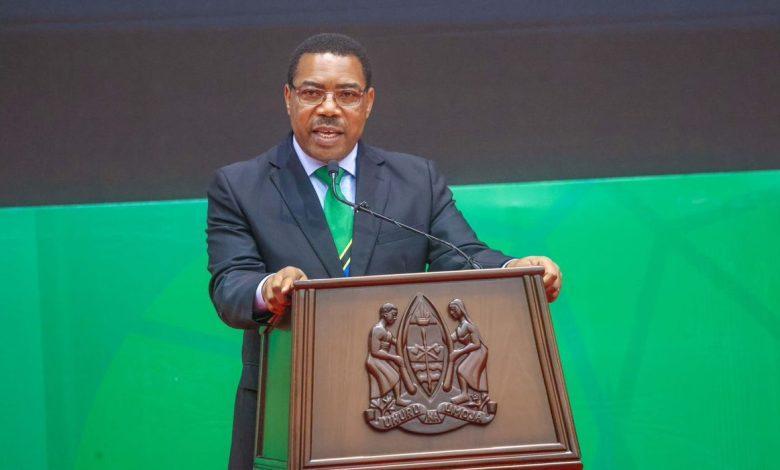Africa-Press – Tanzania. THE government has called on all road users to strictly observe traffic laws while stressing the importance of shifting to clean energy as part of efforts to enhance safety, decarbonisation and sustainable development.
Speaking during the inauguration of the First Week of Sustainable Transport in Tanzania, Prime Minister, Dr Mwigulu Nchemba said adherence to road laws by both private and public drivers is key to guaranteeing justice for all road users and upholding the rule of law.
“Let us commit to observing road laws to ensure smooth execution of our daily responsibilities,” he said, describing the transport sector as an engine of socio-economic transformation.
He expressed concern over double standards in law enforcement, noting that public transport drivers routinely disobey road rules—such as ignoring traffic lights and zebra crossings—while private drivers are penalised for similar offences, thus creating inequality and contributing to accidents.
“It is disheartening that in some areas, those leading in violating road rules are not ordinary citizens but public vehicle drivers. Such behaviour undermines law enforcers in carrying out their duties effectively,” he stressed.
The Prime Minister urged all road users to respect traffic regulations so that pedestrians, including persons with disabilities, can fully benefit from transport services and existing infrastructure.
On contentious issues such as the 50-kilometre-per-hour speed limit, Dr Nchemba directed the Ministry of Transport to engage stakeholders including road users, regulatory authorities, associations and the Police Force in undertaking meaningful legal reforms to ensure uniform compliance.
He also called for continuous road safety training for both private and public drivers to enhance their understanding of traffic laws and safety guidelines.
Dr Nchemba further instructed TANROADS to ensure roads, bridges and signage remain in proper condition to facilitate smooth movement of vehicles and pedestrians.
Additionally, he directed LATRA to intensify vehicle inspections to reinforce quality and safety standards. The Prime Minister appealed to citizens to protect the nation’s road infrastructure constructed through their taxes.
He said Tanzania currently boasts a road network of 181,864.81 kilometres, placing the country among those with the most developed land transport systems in Eastern and Southern Africa, supported by key infrastructure such as the Dar es Salaam Port and the electric Standard Gauge Railway (SGR).
He added that the aviation sector has also recorded significant progress, with a fleet of 16 aircraft, including a cargo plane.
On the transition to clean energy, Dr Nchemba said that eco-friendly fuel sources such as solar, electricity and gas will support national efforts to reduce fossil-fuel pollution and protect the environment.
The First Week of Sustainable Transport in Tanzania was commemorated under the theme: “Clean Energy and Innovation in Transport.”
Earlier, Minister for Transport Prof Makame Mbarawa assured the Premier that the ministry will continue partnering with stakeholders to prioritise the adoption of clean energy.
Prof Mbarawa noted that SGR trains currently operate on electricity and BRT Phase II buses use gas, adding that some private taxis and threewheelers have also converted to gas from petrol.
“The ministry continues to welcome local and international stakeholders, including innovation institutions, to collaborate in accelerating the transition and advancing digital technologies to modernise the country’s transport sector,” he said.
World Sustainable Transport Day is observed globally on November 26 each year.
Sustainable transport promotes universal access, improved safety, reduced environmental and climate impacts, greater efficiency and enhanced resilience key pillars of sustainable development.
For More News And Analysis About Tanzania Follow Africa-Press







